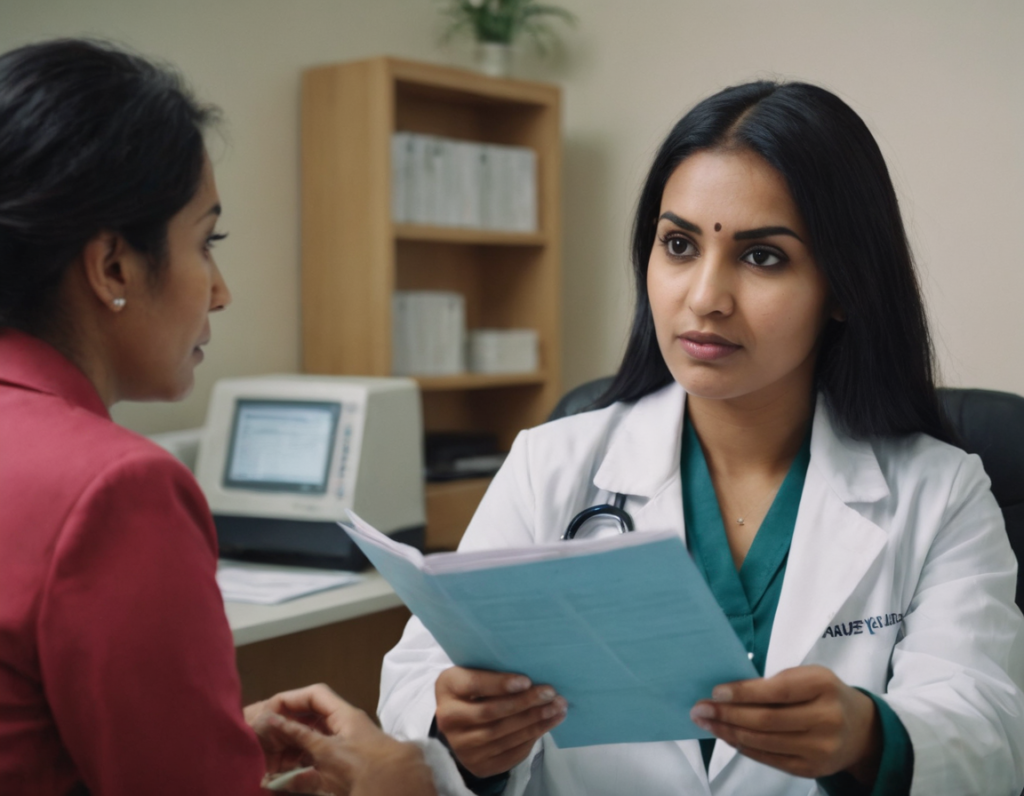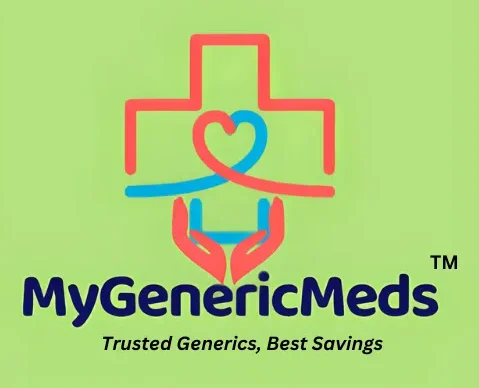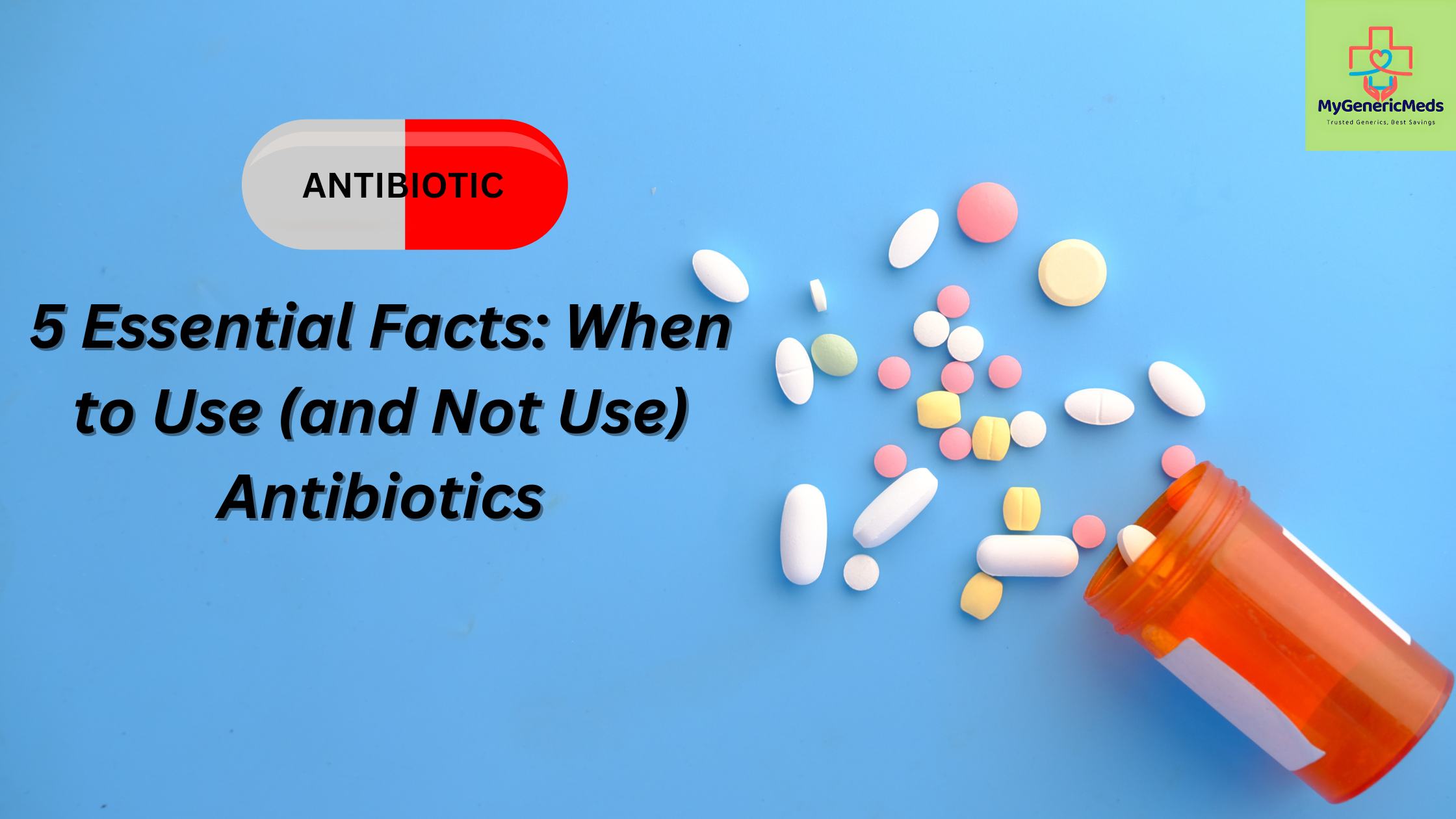Table of Contents
ToggleIntroduction
Antibiotics are powerful medicines that have revolutionized modern healthcare. They have saved countless lives by effectively treating bacterial infections that were once deadly. However, the overuse and misuse of antibiotics, a significant concern in India, have led to a growing problem – antibiotic resistance.
In this guide, we’ll delve into the world of antibiotics, understanding when they are truly necessary and when they should be avoided. By understanding the appropriate use of antibiotics, you can contribute to safeguarding their effectiveness for the future and ensure your own well-being.
We’ll uncover five essential facts about antibiotics, discuss how they work, and address common myths and misconceptions. Whether you’re battling a cough and cold or recovering from a more serious infection, this guide will empower you to make informed decisions about your health.
Let’s embark on this journey to understand antibiotics better and use them responsibly!
What Are Antibiotics and How Do They Work?
Antibiotics, also known as antibacterials, are a type of medication that specifically targets bacterial infections. They do not work against viruses, which cause illnesses like the common cold, flu, and COVID-19. Understanding this distinction is crucial to using antibiotics responsibly.
Antibiotics work in two main ways:
- Bactericidal: These antibiotics directly kill bacteria by disrupting their cell walls or interfering with essential processes within the bacterial cell.
- Bacteriostatic: These antibiotics inhibit the growth and reproduction of bacteria, allowing your immune system to clear the infection.
Different Types of Antibiotics
There are many different classes of antibiotics, each with its own spectrum of activity against different types of bacteria. Some common classes include:
- Penicillins: Effective against a wide range of bacteria, including those that cause strep throat, ear infections, and certain skin infections.
- Cephalosporins: Similar to penicillins, but with a broader spectrum of activity against certain bacteria that are resistant to penicillin.
- Macrolides: Used to treat respiratory infections, skin infections, and certain sexually transmitted infections.
- Fluoroquinolones: Broad-spectrum antibiotics used for various infections, including urinary tract infections, pneumonia, and sinus infections.
Your doctor will choose the most appropriate antibiotic based on the type of infection you have, the suspected bacteria causing it, and your individual health history.
Broad-Spectrum vs. Narrow-Spectrum Antibiotics
- Broad-spectrum antibiotics: These are effective against a wide range of bacteria and are often used when the specific bacteria causing the infection is unknown. Few of the popular antibiotics of this type are ALMOX 500 CAPS 15S and DOXIVENT-LB CAPS 10S.
- Narrow-spectrum antibiotics: These target a specific group of bacteria and are used when the bacteria causing the infection has been identified.
Using narrow-spectrum antibiotics whenever possible is preferable, as it helps to reduce the risk of antibiotic resistance.
Understanding how antibiotics work and the different types available can help you have informed discussions with your doctor and make the best decisions about your treatment.
5 Essential Facts About When to Use Antibiotics
Now that we’ve covered the basics, let’s dive into the crucial question: when exactly should you use antibiotics? Understanding these five essential facts will empower you to make informed decisions about your health and contribute to the fight against antibiotic resistance.
Antibiotics Only Treat Bacterial Infections
This is the most fundamental fact to remember: antibiotics are only effective against bacterial infections. They do not work against viral infections, which are the most common cause of illnesses like the common cold, flu, and COVID-19.
Taking antibiotics for a viral infection not only won’t help you recover faster, but it can also harm your health by:
- Killing beneficial bacteria: Antibiotics can disrupt the delicate balance of bacteria in your gut, leading to digestive problems and other health issues.
- Increasing the risk of antibiotic resistance: When you take antibiotics unnecessarily, you expose bacteria to the drug, giving them a chance to develop resistance. This makes it harder to treat future infections.
Common Bacterial Infections Treated with Antibiotics
While antibiotics are ineffective against viruses, they are essential for treating bacterial infections. Some common bacterial infections that may require antibiotics include:
- Strep throat
- Urinary tract infections (UTIs)
- Some types of pneumonia
- Skin infections (like cellulitis or abscesses)
- Ear infections (in some cases)
Remember, not all infections require antibiotics. It’s crucial to consult a doctor for accurate diagnosis and appropriate treatment.
The Importance of Consulting a Doctor
Self-medicating with antibiotics is a dangerous practice. Only a qualified healthcare professional can determine if you have a bacterial infection and prescribe the right antibiotic. They will consider your symptoms, medical history, and other factors to make an informed decision about your treatment.
Don’t pressure your doctor for antibiotics if they deem them unnecessary. Trust their expertise and follow their recommendations for the best course of action.
Your Doctor Will Decide if You Need Antibiotics
One of the most crucial aspects of responsible antibiotic use is recognizing that the decision to prescribe them rests solely with your doctor. They are the qualified professionals who can accurately diagnose your condition and determine whether it’s caused by bacteria that would respond to antibiotics.
How Doctors Determine the Need for Antibiotics
Doctors use a combination of approaches to diagnose infections and decide if antibiotics are warranted:
- Medical History and Physical Examination: Your doctor will ask about your symptoms, their duration, and any relevant medical history. They will also perform a physical examination to assess your overall health and look for signs of infection.
- Laboratory Tests: In many cases, your doctor may order lab tests to confirm the diagnosis. This could involve:
- Blood tests: To check for signs of infection, such as an elevated white blood cell count.
- Cultures: Samples of blood, urine, sputum, or other bodily fluids may be collected to identify the specific bacteria causing the infection. This helps determine the most appropriate antibiotic.
- Imaging Tests: X-rays, CT scans, or MRIs may be used to visualize the affected area and assess the extent of the infection.

The Dangers of Self-Medication
It’s crucial to avoid self-medicating with antibiotics. Taking antibiotics without a prescription or for the wrong type of infection can have serious consequences. Here’s why:
- Delayed Diagnosis and Treatment: If you self-medicate with antibiotics, you may delay seeking proper medical care, which can worsen your condition and lead to complications.
- Antibiotic Resistance: Misusing antibiotics contributes to the growing problem of antibiotic resistance, making infections harder to treat in the future.
- Side Effects and Interactions: Antibiotics can have side effects, and taking them without medical supervision can lead to adverse reactions or interactions with other medications you’re taking.
Remember, your doctor is your partner in health. Trust their judgment and follow their recommendations for safe and effective treatment.
Take Antibiotics Exactly as Prescribed
When your doctor prescribes antibiotics, it’s crucial to take them exactly as directed. This means:
- Taking the full course: Complete the entire course of antibiotics, even if you start feeling better before the medication is finished. Stopping antibiotics prematurely can allow some bacteria to survive, potentially leading to a relapse of the infection or the development of antibiotic resistance.
- Following the dosage instructions: Take the prescribed dose at the correct times, as instructed by your doctor. Skipping doses or taking them at irregular intervals can reduce the effectiveness of the medication and increase the risk of resistance.
- Not saving antibiotics for later: If you have leftover antibiotics from a previous prescription, don’t take them for a new illness. Antibiotics are specific to the type of bacteria causing the infection, and taking the wrong antibiotic can be ineffective and harmful.
- Storing antibiotics properly: Store antibiotics according to the instructions on the label. Some antibiotics need to be refrigerated, while others can be stored at room temperature.
Why Completing the Full Course is Crucial
When you take antibiotics, they start killing the bacteria causing your infection. However, not all bacteria die at the same rate. Some are more resistant than others. If you stop taking antibiotics before the full course is complete, you may kill off the weaker bacteria but leave behind the stronger, more resistant ones. These resistant bacteria can then multiply and cause a more difficult-to-treat infection.
Example: Tuberculosis Treatment in India
Tuberculosis (TB) is a serious bacterial infection that requires a long course of antibiotics (typically 6-9 months) to cure. If patients stop taking their medication early, the TB bacteria can become resistant to the drugs, leading to multidrug-resistant TB (MDR-TB), which is much harder and more expensive to treat.
By taking antibiotics exactly as prescribed, you not only increase your chances of a full recovery but also help prevent the spread of antibiotic-resistant bacteria. It’s a responsibility we all share to protect the effectiveness of these life-saving medications.
7 Proven Dengue Prevention Tips: Your Ultimate Guide to Stay Safe
Antibiotics Can Have Side Effects
While antibiotics are essential for treating bacterial infections, it’s important to be aware that they can also cause side effects. These can range from mild to severe, and their occurrence can vary depending on the type of antibiotic, the dosage, and the individual’s health condition.
Common Side Effects
Some of the most common side effects of antibiotics include:
- Nausea, vomiting, and diarrhoea: These digestive problems are often caused by the antibiotic disrupting the balance of bacteria in your gut.
- Loss of appetite: Some antibiotics can suppress your appetite, leading to decreased food intake.
- Skin rashes and allergies: Allergic reactions to antibiotics can manifest as skin rashes, itching, hives, or even severe reactions like anaphylaxis. For these problems, it is recommended to apply ointments like CLOBETA-GM OINT 20GM
- Sensitivity to sunlight: Certain antibiotics can make your skin more sensitive to sunlight, increasing the risk of sunburn.
- Fungal infections: Antibiotics can kill off beneficial bacteria that help keep fungal growth in check, leading to yeast infections in the mouth or vagina.
Less Common but Serious Side Effects
In rare cases, antibiotics can cause more serious side effects, such as:
- Kidney damage: Some antibiotics can put a strain on your kidneys, especially if you already have kidney problems.
- Liver damage: Certain antibiotics can cause liver inflammation or damage, especially when taken in high doses or for prolonged periods.
- Hearing loss: Some antibiotics, particularly aminoglycosides, can damage the nerves in your inner ear, leading to hearing loss.
- Tendon damage: Fluoroquinolone antibiotics have been associated with an increased risk of tendonitis and tendon rupture.
Precautions and Tips
To minimize the risk of side effects, it’s important to:
- Inform your doctor: Before taking any antibiotics, inform your doctor about any allergies or medical conditions you have.
- Take probiotics: Probiotics can help replenish the good bacteria in your gut and reduce the risk of digestive problems.
- Protect yourself from the sun: If you’re taking an antibiotic that increases sun sensitivity, wear protective clothing and sunscreen when outdoors.
- Watch for allergic reactions: If you experience any signs of an allergic reaction, such as difficulty breathing, swelling of the face or throat, or a rash, seek immediate medical attention.
Remember, antibiotics are powerful medications that should be taken with caution. By being aware of potential side effects and taking precautions, you can minimize risks and ensure a safe and effective treatment experience.
Antibiotic Resistance is a Serious Problem in India
Antibiotic resistance is a growing global health crisis, and India is particularly vulnerable. The World Health Organization (WHO) has identified India as one of the countries with the highest rates of antibiotic resistance. This alarming trend threatens to undermine the effectiveness of these life-saving medications and poses a significant challenge to public health.
What is Antibiotic Resistance?
Antibiotic resistance occurs when bacteria evolve and adapt to the drugs designed to kill them. This means that antibiotics become less effective or even ineffective in treating infections.
Causes of Antibiotic Resistance in India
Several factors contribute to the rise of antibiotic resistance in India:
- Overuse of Antibiotics: Antibiotics are often prescribed unnecessarily for viral infections or mild bacterial infections that can resolve on their own. This overuse exposes bacteria to the drugs, giving them a chance to develop resistance.
- Misuse of Antibiotics: People may not take antibiotics as prescribed, skipping doses or stopping the course early. This allows some bacteria to survive and become resistant.
- Self-Medication: Many people in India self-medicate with antibiotics, often buying them over-the-counter without a prescription. This can lead to the wrong antibiotic being used for the wrong infection, fueling resistance.
- Poor Hygiene and Sanitation: Poor hygiene practices, inadequate sanitation, and lack of access to clean water can promote the spread of resistant bacteria.
- Agricultural Use of Antibiotics: The widespread use of antibiotics in livestock and poultry farming contributes to the development of antibiotic-resistant bacteria, which can then spread to humans through the food chain.
Consequences of Antibiotic Resistance
The consequences of antibiotic resistance are severe:
- Infections Become Harder to Treat: Resistant infections require stronger antibiotics, longer treatment courses, and may even become untreatable.
- Increased Healthcare Costs: Treating resistant infections is more expensive, putting a strain on individuals and the healthcare system.
- Longer Hospital Stays: Patients with resistant infections often require longer hospital stays, increasing the burden on healthcare facilities.
- Higher Risk of Complications and Death: Resistant infections can lead to complications, organ failure, and even death.
The Need for Urgent Action
Addressing antibiotic resistance requires a multi-pronged approach involving individuals, healthcare professionals, policymakers, and the pharmaceutical industry. By raising awareness, promoting responsible antibiotic use, and investing in research and development of new antibiotics, we can work together to tackle this pressing public health challenge.
Source:
How to Prevent Antibiotic Resistance
The fight against antibiotic resistance is a collective responsibility. By taking proactive steps and making informed choices, we can all contribute to preserving the effectiveness of these life-saving medications. Here are some key strategies you can implement:
Only Take Antibiotics When Necessary
This is perhaps the most crucial step in preventing antibiotic resistance. As we’ve discussed, antibiotics are only effective against bacterial infections and not viral ones. Therefore, it’s essential to:
- Consult a Doctor: Don’t self-medicate with antibiotics. Always seek professional medical advice to determine the cause of your illness and whether antibiotics are necessary.
- Trust Your Doctor’s Judgment: If your doctor determines that your illness is viral or can be managed without antibiotics, trust their expertise and follow their recommendations. Avoid pressuring them for antibiotics if they are not warranted.
Complete the Full Course of Antibiotics
When you are prescribed antibiotics, it’s imperative to complete the entire course as directed by your doctor, even if you start feeling better before the medication is finished. Stopping antibiotics prematurely can allow some bacteria to survive and become resistant to the drug. This can lead to a relapse of the infection, requiring stronger antibiotics or alternative treatments.
Don’t Share Antibiotics with Others
Antibiotics are prescribed based on individual needs and the specific bacteria causing the infection. Sharing antibiotics with others can lead to misuse, as the medication may not be appropriate for their condition. It can also expose them to potential side effects and contribute to the development of antibiotic resistance.
Dispose of Unused Antibiotics Properly
If you have leftover antibiotics from a previous prescription, it’s important to dispose of them properly. Don’t flush them down the toilet or throw them in the trash, as this can contaminate the environment and contribute to antibiotic resistance.
Instead, follow these guidelines:
- Inquire about drug disposal programs: Some local governments or healthcare facilities may have specific programs for safe disposal of medications.
- Mix with undesirable substances: If no take-back or disposal programs are available, mix the unused antibiotics with an undesirable substance like used coffee grounds or kitty litter, and place them in a sealed container before disposing of them in the trash.
By following these simple steps, you can play a vital role in preserving the effectiveness of antibiotics and protecting yourself and your community from the threat of antibiotic resistance.
FAQ: Common Antibiotic Myths and Facts in India
Antibiotics are often surrounded by myths and misconceptions, especially in India, where self-medication and easy access to these drugs are prevalent. Let’s debunk some of these myths and clarify the facts:
Myth 1: Antibiotics Can Cure Any Infection
Fact: Antibiotics only work against bacterial infections. They are not effective against viral infections like the common cold, flu, or COVID-19. Taking antibiotics for viral infections can be harmful and contribute to antibiotic resistance.
Myth 2: It’s Okay to Stop Taking Antibiotics Once You Feel Better
Fact: It’s crucial to complete the entire course of antibiotics as prescribed by your doctor, even if you start feeling better. Stopping early can allow some bacteria to survive and become resistant, leading to a relapse of the infection or a more difficult-to-treat condition.
Myth 3: Stronger Antibiotics Are Always Better
Fact: The best antibiotic is the one that is specific to the type of bacteria causing your infection. Stronger antibiotics are not necessarily better and can have more severe side effects. Your doctor will choose the most appropriate antibiotic based on your specific condition.
Myth 4: Antibiotics Are Safe for Everyone
Fact: Antibiotics can have side effects, and some people may be allergic to certain types of antibiotics. Pregnant women, breastfeeding mothers, and individuals with certain medical conditions may need to avoid certain antibiotics. Always consult your doctor before taking any antibiotics.
Myth 5: You Can Share Antibiotics with Family or Friends
Fact: Antibiotics are prescribed for specific infections and may not be suitable for others. Sharing antibiotics can lead to misuse and the development of antibiotic resistance. It’s important to take antibiotics only as prescribed by your doctor.
Myth 6: Antibiotics are a Quick Fix for Any Illness
Fact: Antibiotics take time to work, and their effectiveness depends on various factors, including the type of infection, the severity of the illness, and the individual’s overall health. While some antibiotics may start working within a few days, others may take longer. It’s essential to be patient and allow the antibiotics to complete their course.
By separating fact from fiction, we can make informed decisions about antibiotic use and contribute to preserving their effectiveness for future generations.
Conclusion: Empowering Yourself for Responsible Antibiotic Use
Antibiotics are a valuable tool in modern medicine, but their misuse has led to the alarming rise of antibiotic resistance. By understanding when to use (and not use) antibiotics, you can play a crucial role in preserving their effectiveness and protecting your health.
Remember these key points:
- Antibiotics are for bacterial infections only. They are ineffective against viruses, which cause the common cold, flu, and COVID-19.
- Always consult a doctor for diagnosis and treatment. Only a qualified healthcare professional can determine if you need antibiotics and prescribe the right one for you.
- Take antibiotics exactly as prescribed. Complete the full course, even if you start feeling better, and follow the dosage instructions carefully.
- Be aware of potential side effects. Antibiotics can have side effects, so inform your doctor about any allergies or medical conditions you have.
- Antibiotic resistance is a serious threat. Avoid misusing antibiotics and take steps to prevent their overuse.
Your Health, Your Responsibility
By making informed decisions about antibiotic use, you not only protect your own health but also contribute to the global effort to combat antibiotic resistance. Remember, antibiotics are a precious resource that we must use wisely to ensure their effectiveness for future generations.
Spreading Awareness
Share this information with your family, friends, and community. By raising awareness about antibiotic resistance and the importance of responsible antibiotic use, we can collectively work towards a healthier future.
Seek Guidance from Your Doctor
If you have any questions or concerns about antibiotics, don’t hesitate to talk to your doctor. They are your best resource for personalized advice and guidance on safe and effective antibiotic use.
Remember, your health is in your hands. By making informed choices and following your doctor’s recommendations, you can protect yourself from infections and contribute to the fight against antibiotic resistance.
Also check out: Best Skin Care Tips for Acne-Prone Skin: Your Ultimate Guide to Clear, Healthy Skin in India






